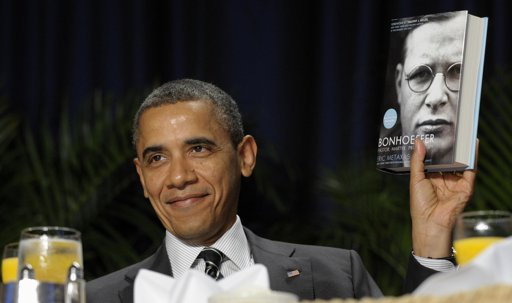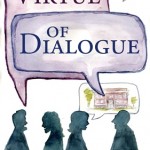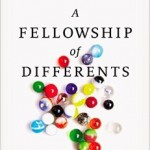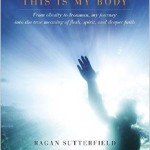 I have read five books so far in 2012. Two were by Martin Luther King – A Call to Conscience, a collection of speeches, and A Knock at Midnight, a collection of sermons – and a third book was Manning Marable’s recent biography Malcolm X: A Life of Reinvention. (I wrote a bit about the Marable book here and here.) I am now approximately four-fifths of the way through Eric Metaxas’s biography of Dietrich Bonhoeffer, Bonhoeffer: Pastor, Martyr, Prophet, Spy. Not long after starting the Bonhoeffer biography, I realized that Bonhoeffer, Malcolm X, and Dr. King all have something in common: they all died – were killed – when they were 39 years old. Today, February 4, is Bonhoeffer’s birthday.
I have read five books so far in 2012. Two were by Martin Luther King – A Call to Conscience, a collection of speeches, and A Knock at Midnight, a collection of sermons – and a third book was Manning Marable’s recent biography Malcolm X: A Life of Reinvention. (I wrote a bit about the Marable book here and here.) I am now approximately four-fifths of the way through Eric Metaxas’s biography of Dietrich Bonhoeffer, Bonhoeffer: Pastor, Martyr, Prophet, Spy. Not long after starting the Bonhoeffer biography, I realized that Bonhoeffer, Malcolm X, and Dr. King all have something in common: they all died – were killed – when they were 39 years old. Today, February 4, is Bonhoeffer’s birthday.
Eric Metaxas was the keynote speaker at the 60th annual National Prayer Breakfast, held last Wednesday. Metaxas gave President Obama a copy of his book, saying, “President George W. Bush read this. So…no pressure.”
I’m enjoying Bonhoeffer. Dietrich Bonhoeffer is a fascinating subject, and Metaxas is a lively and engaging writer. Most of you probably know the story of how Bonhoeffer, a pastor and theologian, collaborated with the German resistance to try to assassinate Adolf Hitler. For this, Bonhoeffer was sent to the Buchenwald and Flossenbürg concentration camps, and executed one month before Germany lost the war.
Bonhoeffer played a key role in a different kind of resistance, working with the global ecumenical movement and the German Confessing Church to oppose the so-called Deutche Christen (“German Christians”), sycophants who tied themselves in theological knots to conform with Nazism’s antisemitic, nationalistic, and fascistic ideology. (Here is a link to the flag of the German Christians. If life was an Indiana Jones movie, there would be a hole where the swastika is.)
Dietrich’s faith and courage are on full display in the biography – as is the courage and “good cheer” of his parents and the entire, extraordinary Bonhoeffer family. Metaxas uses letters and diaries to give us an intimate look into what Dietrich was thinking and feeling when he studied at Union Theological Seminary in New York City, visited black churches in Harlem and learned more about systemic racism against blacks in the American South (he saw parallels with the crescendoing antisemitism back home), pastored German-language churches in London, ran illegal seminaries for the Confessing Church in Germany, and became directly involved in counter-intelligence work.
My main complaint with Bonhoeffer: Pastor, Martyr, Prophet, Spy is that Metaxas rarely talks about Bonhoeffer’s other enduring legacy: the books he wrote. Bonhoeffer’s most famous work, The Cost of Discipleship, appears nine times in 544 pages. Ethics is talked about just 14 times, though, to be fair, it is given its own subsection. (Metaxas writes, “The solution is to do the will of God, to do it radically and courageously and joyfully.”) Life Together, a devotional classic, is mentioned just four times. Metaxas almost never talks about how the books were written, only that they were being written at all. Most often, the books’ contents are described only when they directly relate to something happening in Bonhoeffer’s life.
This is a missed opportunity, and not only because I want to know more about how the books took shape. American evangelicals have the reputation of being anti-intellectual. That is painting with a broad brush, but the reputation is mostly deserved. Though I read historian Mark Noll’s The Scandal of the Evangelical Mind more than a decade ago, I’m still haunted by that book’s first line: “The scandal of the evangelical mind is that there is not much of an evangelical mind.” I’m not belittling Metaxas’s Bonhoeffer as lightweight, merely a historical thriller or ripping good yarn. Far from it. This is a book of great substance. And Metaxas does a brilliant job of putting Bonhoeffer’s life in its historical and theological context.
But talking more about Bonhoeffer’s books would further remind modern evangelicals that they are, in Noll’s words, “the spiritual descendants of leaders and movements distinguished by probing, creative, fruitful attention to the mind.” It would reinforce the fact that Bonhoeffer inspires and challenges us today not just as a man of action and modern martyr, but as a Christian who thought deeply about what it means to live faithfully as a follower of Jesus. I would like to see readers proceed from Bonhoeffer: Pastor, Martyr, Prophet, Spy to Bonhoeffer’s own Life Together or Cost of Discipleship.
One reason I’m surprised that Metaxas didn’t write more about Bonhoeffer’s books is that Metaxas obviously cares about the intersection of faith, culture, and intellectual vigor. He is the founder and host of Socrates in the City, a speakers series in New York City that has featured the likes of Dinesh D’Souza, Os Guiness, Sir John Polkinghorne, and N.T. Wright. Its tagline is “The Unexamined Life is Not Worth Living.”
***
In other Bonhoeffer-related news: If you are in the Pacific Northwest (or are willing to travel), you should think about going to the Ekklesia Project’s Northwest Regional Meeting. The conference is in Portland later this month. The theme is “Engaging the Life and Thought of Dietrich Bonhoeffer.”
[This] conference is dedicated to fostering subversive Christian friendships in which Christians from a variety of denominational, cultural, and economic locations can find encouragement and edification from one another. The fundamental purpose of this meeting is to spur one another on to live faithfully into Christ’s call to radical discipleship.
Our speaker for this year is Barry Harvey. Barry is professor of theology at Baylor University in Waco, Texas. He is the author of Can These Bones Live? and Another City, and has written and spoken extensively on the witness and wisdom of Bonhoeffer.
There is one session on the evening of Friday the 17th. The topic that night is “Learning to Live Polyphonically in a World Come of Age.” Two sessions will be held on Saturday the 18th on the topics of “Praying the Psalms with Dietrich Bonhoeffer” and “A Tale of Two Pastors: Bonhoeffer’s Participation in the Plot Against Hitler.”
You can get more information about the conference at the event’s Facebook page or by contacting Michael Munk here: michaelmunk [at] earthlink.net.
I am going to be there. Are you?











